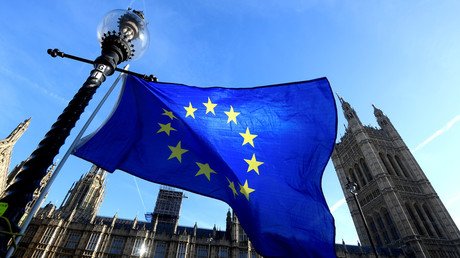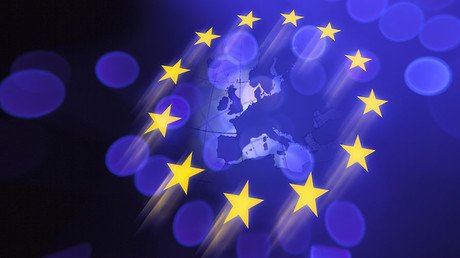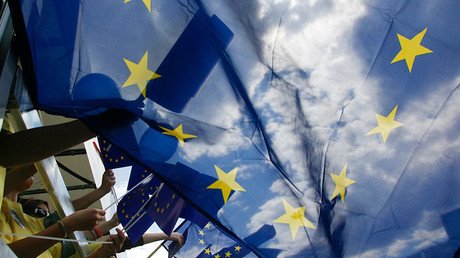'United States of Europe: Mad idea nobody needs'
The concept of a United States of Europe used to be popular 50 years ago, but it has waned since then, John Ryan from LSE IDEAS tells RT. UKIP founder Alan Sked claims the public has no appetite for such a “mad idea.”
Results of Thursday’s YouGov poll show that around 30 percent of German and French people support the idea of creating a federal European state. But the majority of respondents in the countries surveyed are not yet ready for the United States of Europe. The idea was voiced earlier this month by the leader of the German Social Democrats (SPD), Martin Schultz.
To clear up the issue, RT quizzed Alan Sked, founder of UKIP and emeritus professor of international history at LSE and John Ryan, Visiting Fellow, LSE IDEAS think tank and a senior adviser to private and public sector organizations on Brexit.
RT:The idea of a United States of Europe goes back generations. But is it actually possible to turn [it] into reality?
John Ryan: I think this was something that was really quite popular in the 50s, 60s, and 70s, and I think coming out to the European community and to the EU, there were quite a lot of advocates for this. I think at the moment it doesn’t look very realistic that this could happen any time soon. Because you have to look at quite a lot of the countries within the EU at the moment and it doesn’t seem to be the will for that kind of full-on integration. I think when we hear about this quite a lot, it is coming from Brussels, it is coming from the European Commission and it is coming from the European Parliament.
RT:Would you agree, Alan?
Alan Sked: More or less. There is no popular demand for it, there is no particular point to it. We don’t need to bring more politicians, more government, more red tape, more bureaucrats, and a great deal more taxes and taxation to pay for all of that. Europeans, especially since the advent to the euro, have seen most things the European Commission do end up in disaster. Greece has experienced disaster, in particular.
But a lot of countries have experienced degrees of disaster and unemployment to the most of Europe is very high because of the last initiative of the European Monetary Union.
The idea that the people in charge of that could now be in charge of political union doesn’t resonate anywhere. Particularly in Germany, since they are the ones who probably have to pay for all the costs involved. So, when Martin Schultz put forward his proposition, 70 percent of Germans were against it. I don’t think it is going to fly and I don’t see any popular pressure for more Europe. All the elections we’ve had recently, and presumably those in Italy coming up in March, have demonstrated and will demonstrate that people in Europe are more and more turning against the idea of European unity and not in favor of it.
RT:This idea finds most support in Germany and France. Why is that?
Alan Sked: It is not finding much support, only 30 percent. Remember of Germans, for example, in favor of it... and Germans notoriously are anti-nationalist and post-national in the ideas because of their controversial history.
If in Germany, it could only get 30 percent support, I doubt whether it is going to get support anywhere. And particularly, in Germany, Germans are aware – those people who are in support of it want the Germans to pay for it and the Germans are simply going to say ‘no.’
It is a mad idea, it is not necessary and nobody needs the United States of Europe. We don’t know what it would do, it couldn’t add anything, for example, to defense… It hardly pays anything for defense at all already, and any more money going into defense should go into NATO. Exactly what the United States of Europe would be about, nobody seems to know.
RT:Could it be a post-Brexit response to stop other states leaving? Could it work?
John Ryan: This was the idea, after the Brexit vote, that Europe would get its act together and move forward. I think, so far, we have not really seen any real effort, any real attraction for that.
Because if France and Germany at the moment, some of the political parties would be in favor of this, anti-integration and anti-Europe European parties have gained strength in both countries, I think there is a certain degree of tiredness there in those countries. And you see the southern countries who have a question mark on this and you look at countries like Greece and Italy, there are quite tight responses to this European idea at the moment. And I think there is a real job for the European politicians who would believe this to really push something tangible forward…
















